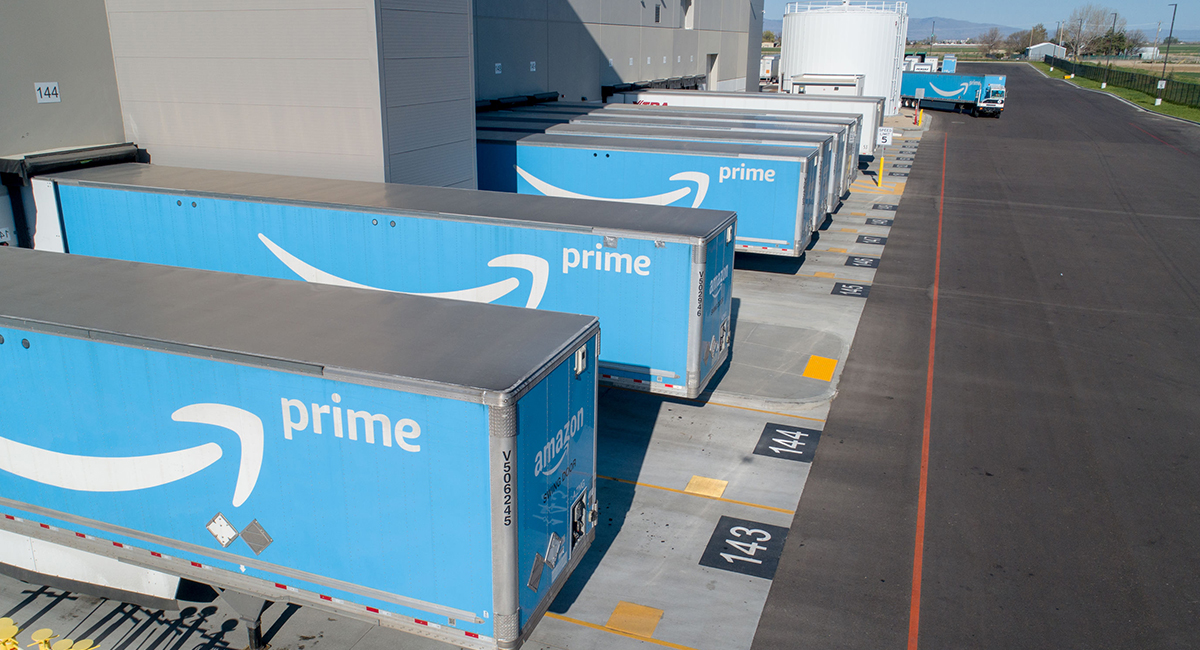“FTC Says Online Retailer Wielded Its Power Illegally to Harm Competitors,” reads a front-page Wall Street Journal article from Sept. 27.
According to its website, the Federal Trade Commission is the government agency whose mission is “protecting the public from deceptive or unfair business practices and from unfair methods of competition.”
FTC Chair Lina Kahn evidently conflates protecting competitors with promoting competition. But her aggressive antitrust agenda turns a half-century of accepted antitrust doctrine on its head. Antitrust law’s sole purpose is—or should be—ferreting out and sanctioning business practices that reduce consumers’ welfare by raising product prices or degrading the quality of goods and services offered for purchase.
Kahn was confirmed as FTC chair because of her implacable opposition to “Big Tech.” That’s the real political story. She now oversees two antitrust cases targeting two of the globe’s three biggest online platforms: Amazon and Meta, Facebook’s parent company. (The Department of Justice is going after a third tech giant, Google.)
All three are significant forces in today’s digital world. “Google it” is common parlance for online searches. According to The Wall Street Journal, Amazon accounts for 38% of all U.S. online retail sales, enjoys an 82% share of the U.S. e-book market, is “the world’s largest cloud-computing company and ... third-largest (U.S.) digital advertiser by revenue.” Facebook is a top social media platform, though TikTok is more popular among the young.
The FTC portrays Amazon as a monopoly by narrowing the relevant market to “online superstores.” That definition conveniently limits Amazon’s competitors to Walmart and Target. But doing so willfully ignores America’s 1 million-plus brick-and-mortar retailers, other large online sellers—eBay, Kroger, Etsy, Best Buy, Wayfair, Zara, Chewy—and thousands of mom-and-pop specialty shops that compete with Amazon in niche markets every day.
If those rivals were included—and how could they not be?—Amazon’s share of total retail sales nationwide would be no more than 6%.
Narrow market definitions are staples of antitrust “hawks.” The trick allows them to create ersatz market dominance out of whole cloth. Aggrieved competitors can then sue their successful rivals for violating laws based on theories only loosely related to the realities of market competition.
A “monopolist,” in economics textbooks, commands 100% of a properly defined market for a good or service that, in the eyes of prospective consumers, has no good substitutes. Think of your local public water utility, electric company or natural gas provider.
Neither Amazon, Google nor Facebook are anywhere close to being monopolists by that definition. They are big, but they face competition from myriad smaller rivals that will eagerly expand if they fail to innovate or serve their customers well.
Kahn once thought Amazon’s prices were “too low.” Blind to competition beyond the “online superstores” market, she now argues that they are “too high.”
What she means, of course, is that Amazon is “too big.” But size is not illegal under any reasonable consumer welfare standard. (Full disclosure: I have been an Amazon Prime member for years.)
As economist Joseph Schumpeter prophetically explained many decades ago, if “creative destruction” is allowed to operate, the market leaders that keep Lina Kahn up at night will be displaced by new market leaders. Blockbuster was once a near-monopoly, but cable and streaming wiped out its market power.
Commercial competition is not a fragile flower that requires cultivation under ham-fisted antitrust law crusaders.
Online commerce has exploded in recent years for many good reasons (pandemic lockdowns, store closings due to urban crime, convenience). And yes, monopolies exist and persist—but most are government-created: the DMV, Postal Service (first-class mail), and poorly performing big-city public schools that trap low-income children in unsafe environments.
Kahn could well take a page from one of her predecessors as FTC chair, James C. Miller III, for whom I worked during President Ronald Reagan’s first term. Attacking public-sector monopolies would help consumers—and taxpayers—far more than mounting populist, but inadequately considered, antitrust cases against the world’s most successful private businesses. They may be big, but that doesn’t make them bad.











